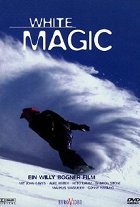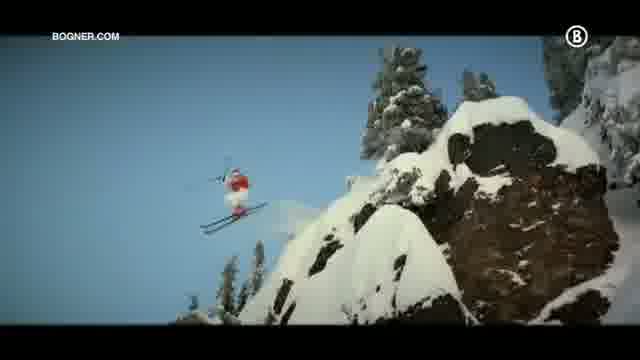Videos (1)
Reviews (1)
White Magic can appear to be both Bogner’s most banal feature-length project and his most genuine and flawless. Like his predecessor, Arnold Fanck, a pioneer of the mountain-film genre, Willy Bogner says he was driven to make the film by his ambition to express what so much fascinated him about skiing, which was something he had never been able to put into words. Therefore, the film’s totally bland narrative is simply a pretence for stringing together a series of breathtaking and aesthetically captivating scenes and music videos that comprise an ode to the beauty of natural winter scenery and adrenaline sports, mostly involving skis and snowboards. Strictly in terms of aesthetic qualities, the bar is set by one of the first sequences of night skiing with flares. In terms of the symbiosis of all of the aspects that are typical of Bogner, however, the highlight of the film remains the sequence beginning with rappelling down a mountain peak (yes, of course, with skis), continuing through a descent on lava rubble and ice massifs and ending with water skiing among icebergs. Though Bogner can’t refrain from his beloved slapstick humour, he limits it to a few sequences, unlike in his previous films, or incorporates it into such spectacular adrenaline-fuelled stunts that it is drown out by the sheer amazement provided by the physical feats on display. A memorable sequence in this respect is the one of parachuting onto a hot-air balloon as an image of the heroine being chased by her persistent young lover. Bogner combines the best of Michael Bay and Jackie Chan. What he has in common with Bay is his pursuit of aesthetically flawless and maximally impressive composition of every single shot, but also the fact that he himself was behind the camera on all his of films, even skiing with it, backwards on a bobsled track. What he shares with Chan is a love for early slapstick and the ambition to come up with more spectacular and challenging physical stunts with each successive project. But even the most outlandish films by those two cannot measure up to Bogner’s screenwriting guilelessness. White Magic frames individual outdoor sequences as memories, dreams, fantasies and playful thoughts of the female protagonist and her fellow passenger on the train to the mountains. By traditional standards, that is the height of sloppiness and absurdity, but by the optics of the avant-garde, it is a display of pure genius in the interest of the overall impressionistic work. At any rate, you simply won’t see anything like it anywhere else.
()

